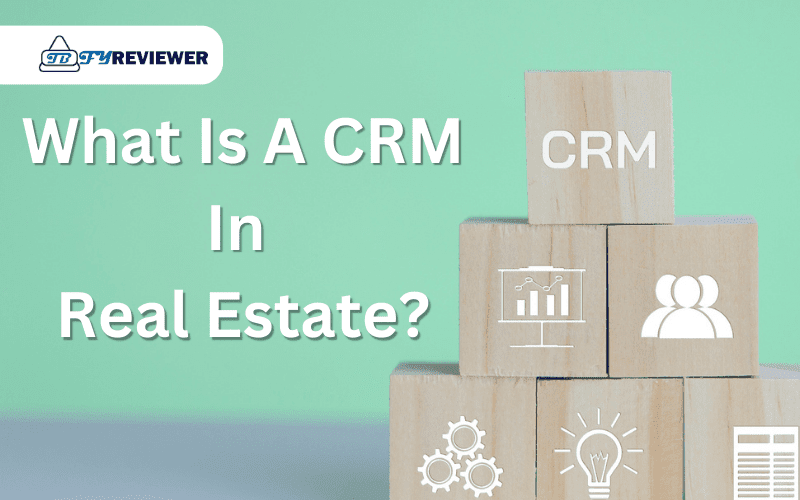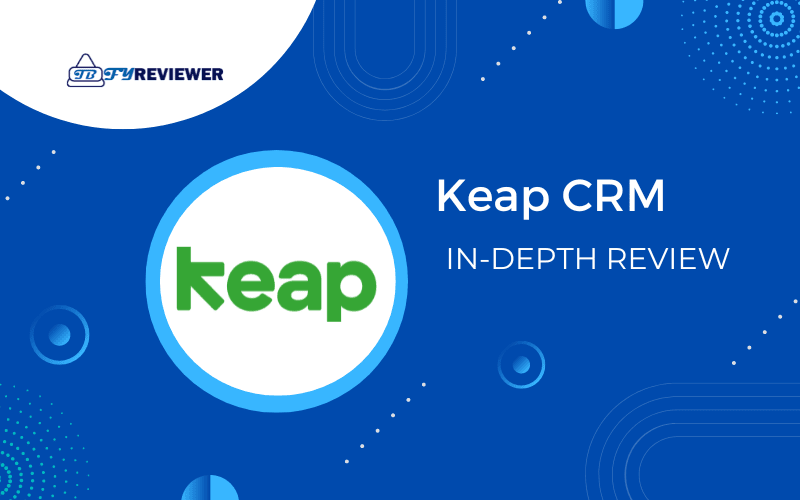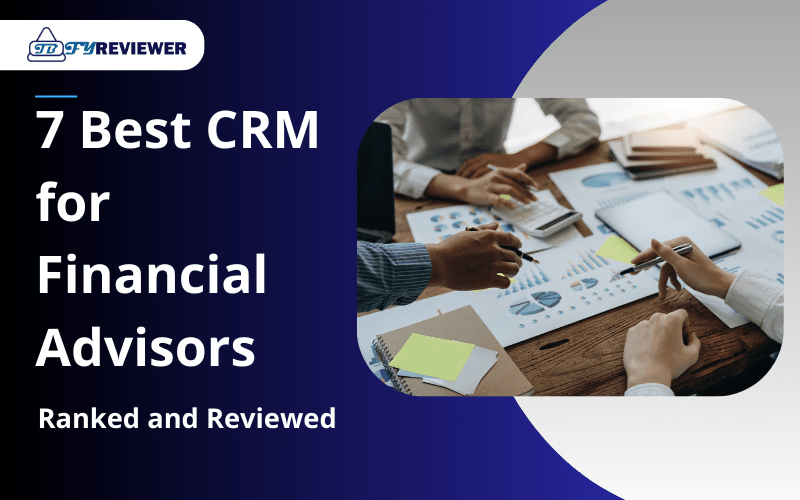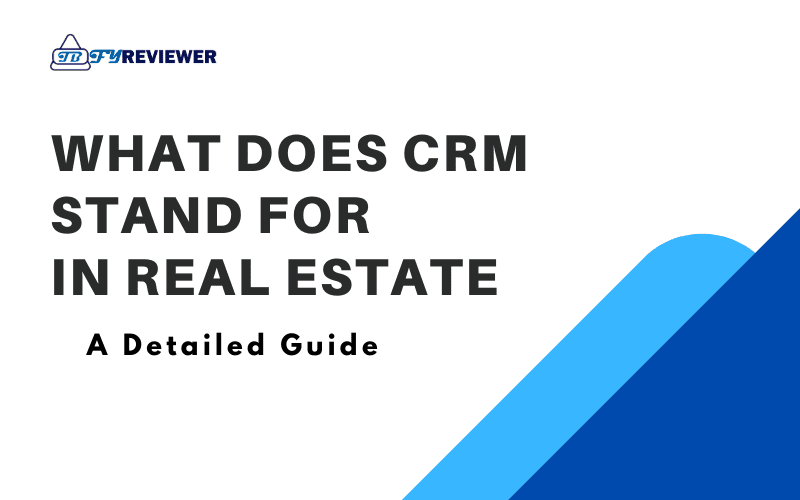Join TbfyReviewer’s newsletter to receive every new article.
What is a CRM in Real Estate: Enhancing Customer Relationships
Hossam jamjama
- June 7, 2023

In the world of real estate, it’s essential to manage clients’ information efficiently and nurture relationships with them to make sales and ensure success. How well a business manages its customer relationships can significantly impact its success or failure.
A CRM in real estate helps in tracking buyer-seller interactions, curating personalized communication strategies, and automating mundane processes.
This article explores what CRM is and its role in the real estate industry, its importance, key objectives, and benefits, components of a CRM system, type of systems available, things to consider before selecting one, best practices for implementation, case studies, and concluding thoughts.
Definition and Concept of CRM in Real Estate
A CRM (Customer Relationship Management) system is a software suite that facilitates businesses to manage contact information about customers or clients.
In the world of real estate, it serves as a one-stop-shop solution for managing leads, contacts, properties, communication logs, transaction history, and other necessary data points.
Agents can use it to organize their work and maintain regular communication with their clients throughout the buying or selling process.
It also helps in keeping track of critical interactions like calls made or appointments scheduled so that crucial follow-up is not missed.
Importance of Effective CRM in the Real Estate Industry
The effectiveness of CRM in real estate lies in building strong customer relationships by offering quality service right from the beginning till closure.
With the competition rising every day in this industry; staying connected with former and current clients is crucial to foster long-term professional connections
A robust CRM system ensures that leads are assigned to agents on priority based on their potential worthiness while astutely tracking transactions relating to deals made.
Moreover, effective communication plays a vital role during the buying process while ensuring happy customers’ end-to-end satisfaction levels are demonstrated through referrals or social proofing techniques leveraged by satisfied customers through digital channels.
Check out also What Role Can a CRM Play in Effective Martech Stack.
Key Objectives and Benefits of Using CRM in Real Estate
A CRM system helps businesses achieve several aims such as:
- Streamlined process of managing leads
- Efficient contact and client management
- Improved property and listing monitoring
- Effective communication and collaboration among agents
- Enhanced task and calendar management
- Periodic reporting to track performance
The benefits of using CRM in real estate include:
Enhancing Customer Relationships
CRM helps build long-term connections with customers by maintaining personalized communication throughout the buying or selling journey.
It makes it easier for agents to access critical customer information that facilitates managing their expectations better.
Managing Workflows
Agents do not have to worry about staying on top of critical tasks such as follow-ups, scheduling appointments, or creating reports because these mundane activities are automated, freeing them up to focus on the more strategic elements of their job.
Improving Conversion Rates
Since a CRM platform helps identify and track qualified leads based on demographic data, online behavior scores, and website activity, businesses can customize their outreach efforts effectively to convert more leads into clients.
Leveraging targeted email campaigns and marketing automation tactics amplify conversion rates while keeping the brand at the forefront of these potential buyers’ minds and reduce end-to-end market cycle times.
Gaining Insights through Data Analytics
The ability to track data automatically generates insights that improve sales performance through accountability reports or identifying operational bottlenecks.
These analytical tools help in making data-driven decisions rather than relying on gut feelings.
Components of A Real Estate CRM System
A real estate CRM system consists of multiple components that are detailed below:
Lead Management
Capturing and Organizing Leads
A good CRM system collects visitor data via web forms, media campaigns, landing pages enquires that filter directly into lead lists subsequently being partitioned based on qualifier criteria attracting prioritization rules such as interest level from experienced to novice leads.
Each buyer is accompanied by a full set of records (name, address, contact information), often augmented with additional on-demand profiling data.
Lead Scoring and Qualification
The system uses this data to score and qualify leads based on the strength of their potential to activate reducing unwanted engagement while increasing overall pipeline quality.
The scores are calculated according to both demographic and behavior-based attributes.
Then the best matches for every lead can be assigned to select personnel with appropriate experience levels and establish priority status in their workflow queue.
Automated Lead Nurturing
Moreover, automated lead nurturing programs play a significant role during the conversion funnel.
It involves engaging prospects through personalized content to keep them moving down the sales cycle while demonstrating your business value proposition.
CRM systems leverage these techniques to deliver targeted messaging, offers, or information related directly to the prospective buyer’s current needs and wants.
Contact and Client Management
Storing and Organizing Client Information
CRM systems are the perfect solution for storing customer data while making management effortless with relevant client records noted, including interactions such as phone calls or curated transaction history such as previous purchases.
This component disposes of cumbersome paper filing efforts by aggregating into a digital format/records management forms.
Tracking Interactions and Communication History
The system keeps a record of all communications between agents and clients for transparency while ensuring that any miscommunication is caught before it escalates.
Agents ensure the customers they sell to are informed consistently across channels like email, text message, or social media.
Segmentation and Categorization of Contacts
The ability to segment contacts using customized target criteria allows agents to prioritize who they contact first and how often.
Providing meaningful communication strategies that convert profitably into sound referrals through effective leveraging post-sale relationships.
Property and Listing Management
Tracking and Organizing Property Information
CRM systems help agents track critical property details, including house descriptions, upgrades included in listings, pricing history & metrics analytics that inform performance analysis enabling smarter decision making.
Inbuilt functionalities limit double entry decoding errors while generating property histories for each viewing property reducing outflow errors and subsequent re-working.
Listing Management and Updates
It simplifies managing different listings for each property an agent holds, enabling a ‘one place’ approach that streamlines reporting, document management, client feedback or suggestions while enhancing interaction among clients, agents, and affiliated brokers.
Alerting when updates occur easily lets agents present the best listing strategies dependent on organizational portfolio strategy.
Integration with Property Search Websites
Integrating your CRM system with property search websites makes it easier to list new properties as well as update them or information eliminating the need to hop between different portals, which saves time and improves productivity.
Communication and Collaboration
Email and SMS marketing
Agents can leverage email marketing campaign services within CRM systems to send messages in bulk to specific groups of people for new offers, creating reports or other campaigns.
This is complemented by SMS messaging services increasing engagement rates with suitable content and promotional offers.
Automated Drip Campaigns
Drip campaigns are another way to automate communication with customers.
These consist of pre-written emails sent at specific intervals to promote the business and foster customer loyalty.
Personalized activities segmented by geography, demographic data or behavior patterns can be initiated creating tailored messages resulting in more significant metric values.
Collaboration Tools for Team Communication
CRM systems offer collaboration tools such as chat messaging services that allow teams to work together on a deal that is pooled.
They can simultaneously view the client’s contact history to ensure they understand its relevance better and gather critical insights to serve the customer better.
Task and Calendar Management
Scheduling and Tracking Tasks
Task scheduling ensures that agents never miss out on necessary activities such as follow-ups after open-house tours or final walkthroughs.
Agents are reminded promptly about essential events such as appointments or deadlines, thus ensuring accountability by not missing important critical follow-ups with customers.
Calendar Integration and Reminders
Calendars can be managed through apps that integrate with the CRM application allowing users to keep their events organized across multiple devices.
The reminders system detects new events that will occur promptly highlighting any outstanding tasks automatically.
Deadline Management and Follow-ups
Having a CRM system eliminates the need for manual follow-ups on deadlines as it automates these processes alerting agents when specific days, weeks or months remain before a deadline ensuring penalties or loss of booking are avoided.
Reporting and Analytics
Performance Tracking and Metrics
CRM systems create custom reports with data analytics that helps track performance metrics such as buyer interests, page views data attributes like demographics enabling smarter decision making.
Sales Pipeline Analysis
Sales pipeline analysis gives an overview of the current leads in the funnel, where they come from, and the effectiveness of current strategies to move down through the conversion funnel.
These metrics and insights allow for fine-tuning of sales tactics and building long-term positive relationships.
Data Visualization and Reporting Tools
CRM systems simplify complex data analytics with intuitive interfaces that enable data visualization which improves decision-making capabilities by highlighting key indicators at critical touchpoints.
Types of Real Estate CRM Systems
CRM systems can be categorized into two different types:
1. On-Premise CRM Solutions
Overview and Benefits
On-premise solutions are installed directly on the agent’s computer, providing direct access to local network resources and hence making data transfer more secure.
It offers complete ownership and control over one’s data within a completely offline environment, supporting internal audits or compliance obligations.
In addition, it provides much quicker program responses than cloud-based software offerings do since all queries occur locally.
Considerations and Challenges
On-premise systems usually require higher up-front installation costs as hardware purchases must be done beforehand.
Maintenance costs over time can also be costlier since every update or change must be done manually compared to their cloud-based counterparts.
2. Cloud-Based CRM Solutions
Overview and Benefits
Cloud-based solutions offer significant flexibility because they are easily accessible from various devices and locations as requirements arise.
Since cloud solutions utilize a range of cloud resources, flexibility is guaranteed since hardware costs are significantly reduced, saving on software installation, on-premise hardware encryption technologies, and IT staff required.
Considerations and Challenges
Although cloud systems provide easy portability across multiple devices, there are potential security risks that you may need to mitigate through alternative means like encryption or SSL transport layer security protocols.
Performance issues may arise from interferences between operating systems and online applications, leading to specific features of the system not performing as anticipated.
Selecting the Right CRM for Real Estate
Choosing the right CRM system can be vital to a real estate company’s success. Here are some factors to consider when selecting a CRM for your real estate business:
Assessing Specific Real Estate Needs
Real estate has unique needs that may differ from other industries. As such, it is crucial to assess the specific needs of your enterprise before choosing a CRM.
For example, some real estate companies require custom functionalities like property tracking features and lead capturing tools.
Key Features and Functionalities to Consider
When choosing a CRM, it is essential to consider specific features and functions that align with your business goals.
For example, automated workflows, lead scoring options, and detailed reporting functionalities can be beneficial. Look out for other key features such as lead nurturing capabilities, mobile access, and analytics functions.
Integration Capabilities with Other Real Estate Tools
Most real estate companies use several software tools to manage their businesses. As such, it is crucial to ensure the chosen CRM can seamlessly integrate with those tools.
Integrating your CRM with other tools can improve productivity by automating repetitive tasks and minimizing data entry errors.
User Friendliness and Ease of Implementation
A user friendly CRM is vital for ensuring staff adoption of the system effectively.
When choosing a CRM, consider how easy it will be to train your employees on how to use it.
Also, look into the time it takes to set up, including importing data and ensuring proper configuration. A CRM that takes minimal effort to set up and use can help ensure staff adoption.
Pricing and Support Options
Price is usually a key consideration when buying any software or tool.
Look for CRM solutions that align with your budget and have flexible pricing options that match your specific needs and usage levels.
Consider available support services, like online tutorials, webinars, email, and phone support options in case you run into technical issues with the system.
Best Practices for Implementing a Real Estate CRM
Once you’ve selected the right CRM for your business, effective implementation is critical to optimizing performance. Here are some best practices for successful CRM implementation:
Defining CRM Goals and Objectives
Clearly defining your goals is essential for a successful CRM implementation.
Agree as a team on what you want the system to do for your enterprise, such as managing lead activity, automating follow-up tasks or tracking deal progress.
Make sure that each goal is trackable and relevant.
Data Migration and Cleansing
Migrating existing data to the new CRM can be one of the most challenging steps in implementing a new system.
Ensure good quality data defines the critical fields needed by the real estate company.
Data cleansing tools are also helpful to clean up existing data before importing it into the new CRM system.
Staff Training and Adoption
User adoption is crucial to maintaining the usefulness of your new CRM system. Train all staff members who will be using the system regularly so they can maximize its functionality.
Consistency of processes lets multiple users manage data efficiently from remote locations ensuring flexibility in working schedules.
Customization and Configuration
Real estate companies have unique needs when it comes to their core processes; accordingly, customization of their CRM is important.
Customization personalizes the system to match how your real estate company functions.
This can include creating custom fields, setting up workflows automation processes as well as other advanced configurations if required.
Ongoing System Maintenance and Updates
It is important to keep your CRM up to date to ensure it remains current with industry standards, security protocols, and best practices.
This also includes timely fixes of any software updates that may impact performance or affect integrations with other tools.
Real Estate CRM Case Studies
It is helpful to take a look at CRM case studies for real estate companies that have successfully implemented them for their businesses.
Successful companies typically document their journey, from selection to implementation, and adoption. Here are some examples that provide valuable insights.
Success Stories and Examples
First example
One success story is a real estate firm based in California.
The company used a CRM system to manage its lead generation process effectively, automating follow-up tasks after the first interaction with potential customers.
The result was more effective communication between staff and prospective clients resulting in an increase in business closing rates.
Second example
Another example is a commercial property agency in Florida that used a customized CRM system designed specifically for their unique processes.
The system helped improve their data collection techniques which enabled them to present detailed reports that provided their clients with a clear understanding of local market conditions.
Lessons Learned and Key Takeaways
One key takeaway is the importance of the assessment phase and how it impacts the quality of the selected CRM system.
Companies also learned about the need to have good quality data defining critical fields needed by real estate companies while migrating existing data to new systems.
Another lesson learned was the importance of configuration capabilities offered by CRMs, as this plays a significant role in how well it can align with your business processes.
Conclusion
In conclusion, a CRM is an integral tool for managing customer relationships in real estate. It enables brokers and agents to keep track of their communication histories with existing and potential clients, as well as to conduct targeted marketing campaigns that increase the chances of conversions and repeat business.
Once you’ve chosen the right CRM system for your real estate business– through proper planning and ensuring strong support throughout the implementation stages – it can truly be one of the best investments you can make for your business.
- Last Update OnJune 7, 2023
- ByHossam jamjama

Hossam Jamjama
Hey, it’s Hossam. I am a full time digital marketer & an online business owner. I write guides and in-depth reviews of the best SaaS products available. To help businesses make informed decisions about picking the right one for them.
Disclosure: TbfyReviewer is a participant in various affiliate programs, which means we may earn a commission when you buy something through links on our site at no cost to you if you decide to purchase a paid plan. You can read our affiliate disclosure.
Table Of Content
- Definition and Concept of CRM in Real Estate
- Importance of Effective CRM in the Real Estate Industry
- Key Objectives and Benefits of Using CRM in Real Estate
- Components of A Real Estate CRM System
- Types of Real Estate CRM Systems
- Selecting the Right CRM for Real Estate
- Best Practices for Implementing a Real Estate CRM
- Real Estate CRM Case Studies
- Conclusion




